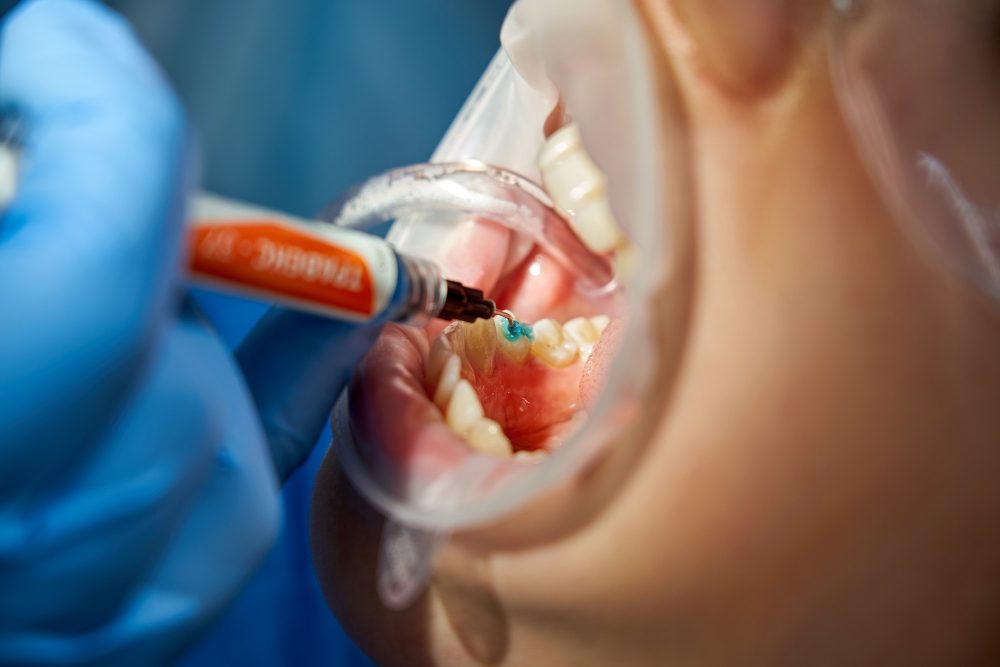Best Treatment for Sensitive Teeth

If you’ve been wincing at the thought of biting into ice cream or drinking a hot coffee, you’re not alone and not imagining it. Sensitive teeth treatment is something many people seek, but it’s often hard to know what works.
Tooth sensitivity can feel like a sharp jolt or dull ache, but either way, it’s frustrating and often unpredictable.
You might have tried switching toothpaste or avoiding cold drinks altogether. You might also try to “deal with it” and hope it disappears.
But here’s the truth: sensitivity is usually a symptom of something deeper, and the good news is that the proper treatment can offer real, lasting relief.
Let’s break down what’s happening—and more importantly, what you can do to regain control of your oral comfort.
Understanding Why Your Teeth Are Sensitive
Before treating it, it helps to understand why your teeth are so dramatic. Sensitivity usually happens when the protective layers of your teeth—your enamel or your gums—are compromised.
When that happens, the inner parts of your teeth (called dentin) become exposed to heat, cold, acidity, or even pressure. Common triggers include:
- Brushing too hard
- Gum recession (often from gum disease)
- Tooth grinding (bruxism)
- Erosion from acidic foods or drinks
- Whitening products or specific dental procedures
- Tooth decay or cracks
You might notice pain when you eat, drink, or even breathe in cold air. That pain is a signal from your body—it’s not just an annoyance, it’s a clue that something needs attention.
The Best Treatments for Sensitive Teeth
Let’s get into what helps. Because here’s the thing: there’s no one-size-fits-all solution. The best sensitive teeth treatment depends on what’s causing the problem.
1. Desensitising Toothpaste
Compounds like potassium nitrate and stannous fluoride, found in many toothpastes, help prevent pain impulses from reaching the nerve inside your tooth.
It won’t work overnight—give it a few weeks of consistent use. If your sensitivity is mild and comes from exposed dentin, this could be enough to reverse the situation.
Use it regularly, not just when you’re in pain. Sensitivity relief builds over time.
2. Fluoride Applications
If your enamel is thinning or you’re at risk of decay, professional fluoride treatments can help strengthen the surface of your teeth and reduce sensitivity. These treatments can be done in-chair during a dental visit and often take just a few minutes.
Think of fluoride as a shield—it doesn’t just relieve sensitivity; it also helps prevent future damage.
3. Dental Bonding or Sealants
If you have exposed root surfaces or worn enamel areas, your dentist might apply a bonding agent or sealant to cover and protect them. This creates a barrier between the sensitive spot and whatever’s triggering your pain.
This can be especially helpful for people with receding gums or small cracks in their teeth.

4. Treatment for Gum Disease
Receding gums are one of the major causes of sensitivity, and often, gum disease is the reason behind that recession. Treating the gum issue will be key if your sensitivity is linked to inflammation, bleeding gums, or visible root exposure.
This might include deep cleaning, improved at-home care, or other gum therapies. Once the gums are healthier, they can often begin to protect the sensitive parts of your teeth again naturally.
5. Custom Night Guard (If You Grind Your Teeth)
You might not even know you’re doing it, but grinding your teeth, especially at night, can wear down enamel quickly. This might be a hidden culprit if your sensitivity is accompanied by jaw pain or headaches.
A custom night guard (occlusal splints) made by your dentist can cushion the impact and help protect your enamel while you sleep.
6. Restorative Treatments (Fillings or Crowns)
Sometimes sensitivity is due to more serious issues like a cavity, crack, or worn-out filling. In these cases, the best treatment is restoring the tooth structure properly, whether with a new tooth filling, an inlay, or even a dental crown.
It’s not just about stopping the pain but saving the tooth from further damage.
7. Root Canal Treatment (When All Else Fails)
In rare cases, if the sensitivity is severe and not responding to other treatments, it could mean the inner nerve of the tooth is affected. A root canal might sound intimidating, but it’s a highly effective way to end chronic tooth pain and save your natural tooth.
What You Can Do at Home
Professional care is key, but what you do daily makes a huge difference, too. Here’s how to be kind to your teeth:
- Use a soft-bristled toothbrush
- Avoid brushing immediately after acidic foods (wait at least 30 minutes)
- Rinse with a fluoride mouthwash
- Limit highly acidic foods and drinks (like soft drinks, citrus, and wine)
- Stick to regular dental check-ups to catch issues early
Listen to the Pain—Don’t Just Mask It
It’s easy to brush off sensitivity as a minor inconvenience. But your body is smart—it’s telling you something. Whether it’s enamel wear, gum trouble, or something more profound, sensitive teeth treatment isn’t about numbing the pain.
It’s about understanding, treating, and preventing it from returning.
You don’t have to live with that flinch whenever you sip something cold. You deserve to enjoy food and drinks without hesitation.
Sensitive Teeth Treatment in Applecross
If you’ve been putting off dealing with your tooth sensitivity, now’s the time. Relief is possible—and often simpler than you think.
Book an appointment today at Epsom Dental Care Applecross and let us help you find the right solution for your smile. Whether it’s a gentle fluoride treatment, targeted gum care, or simply finding the right toothpaste, we’ll guide you every step of the way.
Let’s make sensitive teeth a thing of the past. You deserve comfort, and we’re here to help you get it.
Call your Applecross dentist at (08) 9316 0555 today.
Visit us at 729 Canning Hwy in Applecross, WA.
